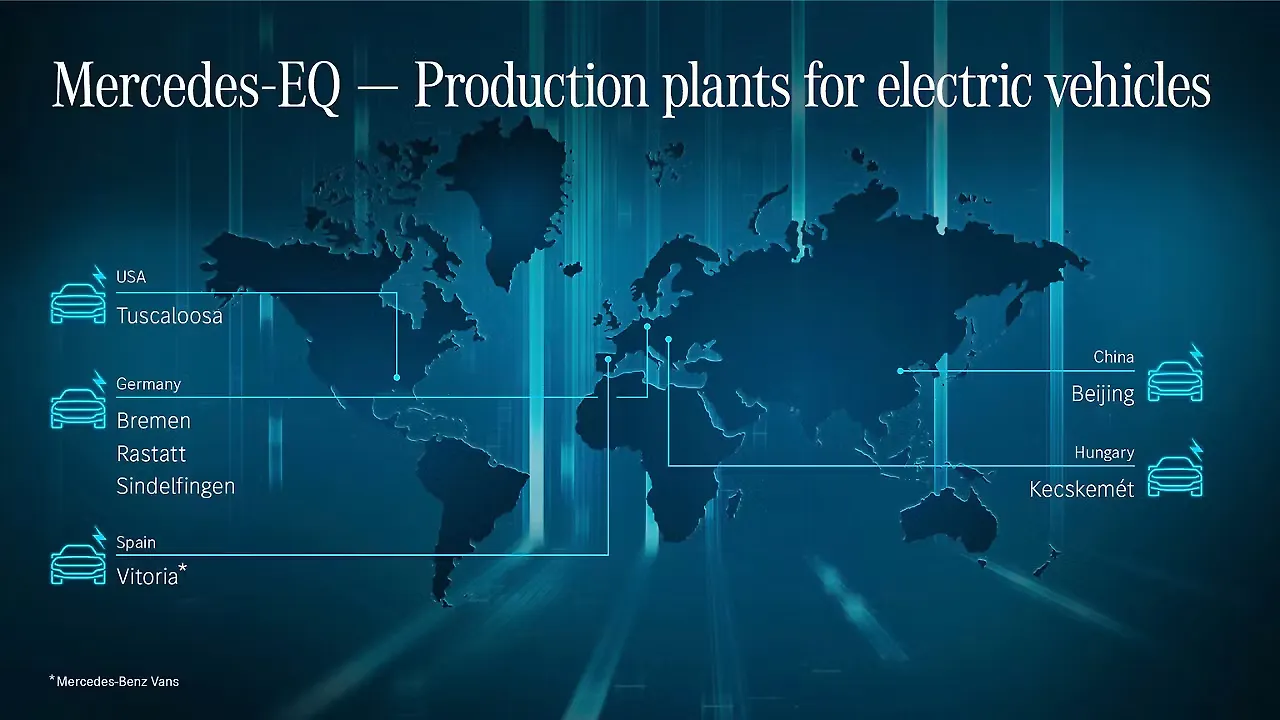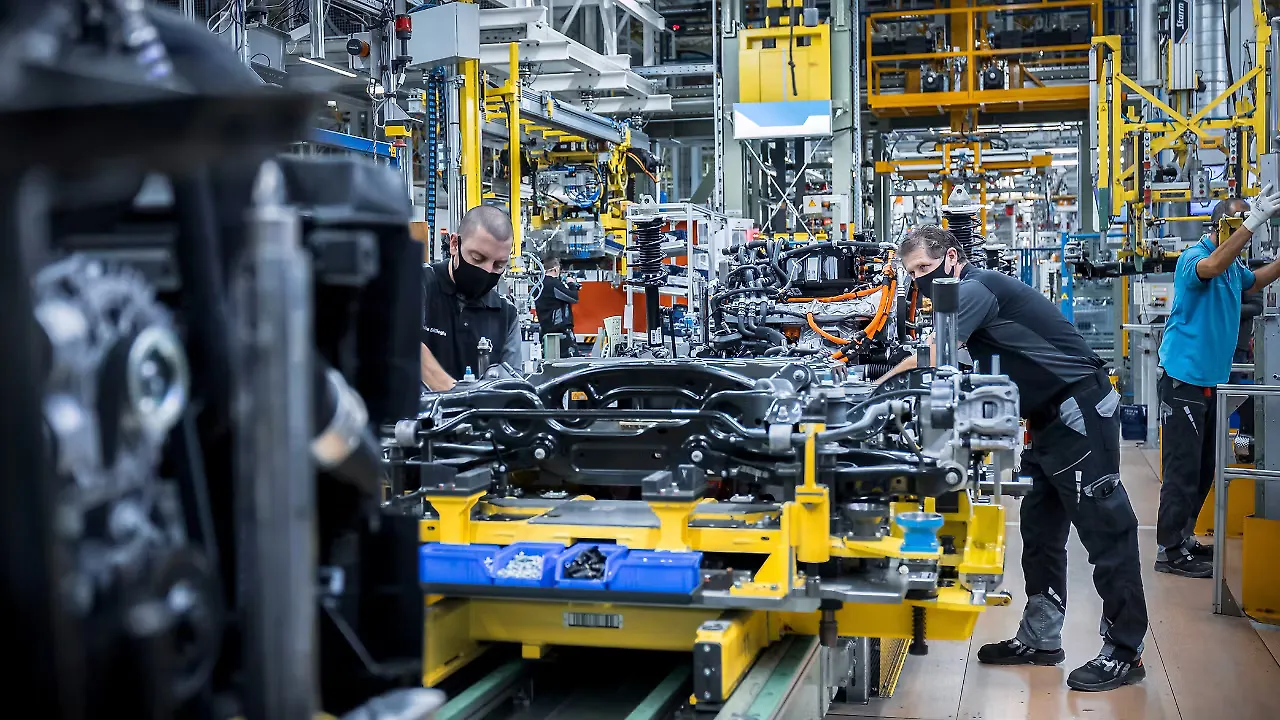
At its Economics of Desire event held recently, the German luxury carmaker Mercedes-Benz announced that its future product portfolio would focus on three categories: Top End Luxury, Core Luxury and Entry Luxury.
In a bid to achieve this, the company has announced that it is aligning its global production network to manufacture its reshaped product portfolio focused on luxury electric vehicles as the carmaker prepares to go all-electric by the end of the decade or wherever market conditions allow.
According to the German company, its plants in Sindelfingen, Bremen, Rastatt and Kecskemét will start production of new models in the Top End Luxury, Core Luxury and Entry Luxury segments from the middle of the decade.
The Sindelfingen site is the lead plant for the Top End Luxury segment and will produce models based on the electric AMG.EA platform from 2025. At the same time, the Bremen plant in Germany and the Kecskemét plant in Hungary will manufacture vehicles in Europe based on the electric MB.EA platform. The Rastatt and Kecskemét plants will also produce the repositioned models based on the MMA platform from 2024 onwards.

Implementing Business Plan
As part of implementing its 2022-2026 Business Plan, the vehicle maker noted that it is investing more than €2 billion into its European production sites. This step marks a new phase of introducing next-generation electric platforms in production, securing future employment at European locations. The new production plan results from constructive discussions with German employee representatives, resulting in far-reaching measures to increase flexibility and efficiency further.
Jörg Burzer, Member of the Board of Management, Mercedes-Benz Group AG, Production and Supply Chain, said, “We are ready for the rapid scaling of electric vehicle volumes - not least thanks to our highly qualified and motivated team worldwide. Furthermore, with the new production setup we are further increasing our flexibility and efficiency and securing the future of our locations.”
Ergun Lümali, Dep. Chairman of the Supervisory Board and Chairman of the Works Council of Mercedes-Benz Group AG, noted that employee representatives demanded that German production sites continue to play a significant role.
“The introduction of new technologies to our production sites is the key to becoming future proof and to ensuring continued employment,” he said.
Sabine Kohleisen, Member of the Board of Management of Mercedes-Benz Group AG, Human Resources and Labor Director, said, “The shift toward an electric and digital future is a big challenge and at the same time an opportunity.”
Current Level Of Electrification
The company currently produces six all-electric EQ models rolling off the production line at six locations on three continents. The company’s plants can produce vehicles with different drivetrains on a single production line, and with the strategic goal of shifting to all-electric, the high degree of flexibility is a decisive advantage.
With its MO360 digital production system, it can already produce battery-electric vehicles in large volumes. Additionally, the batteries for its EVs are supplied by the global battery production network with factories on three continents. The automaker has been producing CO2-neutral in all of its plants worldwide since this year and has also been purchasing electricity in Germany that comes exclusively from renewable sources.
Electric Drivetrain
The German automaker will deepen vertical integration in manufacturing and development and insource electric drive technology. The next generation of electric drive systems is being developed in-house. The manufacturing and assembly of parts of the electric drive systems for future models of the Mercedes-EQ brand will start at the end of 2024 at the Untertürkheim plant.

Another important step is the acquisition of UK-based electric motor company YASA. With this deal, the company gains access to unique axial flux motor technology and expertise to develop next-generation ultra-high performance motors. The Mercedes-Benz Berlin plant will expand its production portfolio with the manufacture and assembly of these ultra-high-performance axial flow electric motors in the future.
Sustainability
Compared to 2020, the vehicle manufacturer is pursuing the goal of at least halving CO₂ emissions per passenger car over the entire life cycle by the end of this decade. The most important levers for this are the electrification of the vehicle fleet, charging with green electricity, improving battery technology and the comprehensive use of recycled materials, including batteries and renewable energies in production.
The vehicle maker has been producing CO2-neutral in all of its own plants worldwide since this year and has also been purchasing electricity in Germany that comes exclusively from renewable sources (CO2-free) since this year. A green electricity supply contract ensures the purchase of electricity from renewable energies at all times. In addition, the company aims to increase renewable energy production at its sites. Solar plants with a capacity of more than 11 MWp are to go into operation by the end of next year.
By 2025, the company will invest a three-digit million sum in the installation of photovoltaic systems. It is also planning to invest in new power purchase agreements for wind turbines worth €1 billion by the middle of the decade.
By 2030, it is planned to cover more than 70% of the energy demand in production from renewable energy sources - 15% is to be generated by renewable energy at the company's own locations. This is to be achieved by expanding solar and wind energy at its locations and by concluding further corresponding power purchase agreements. The company is also pursuing the goal of reducing water consumption by 35% by 2030.
In the next step, it wants to make logistics CO2-neutral. The rail transport of vehicles and components such as batteries play an important role here.